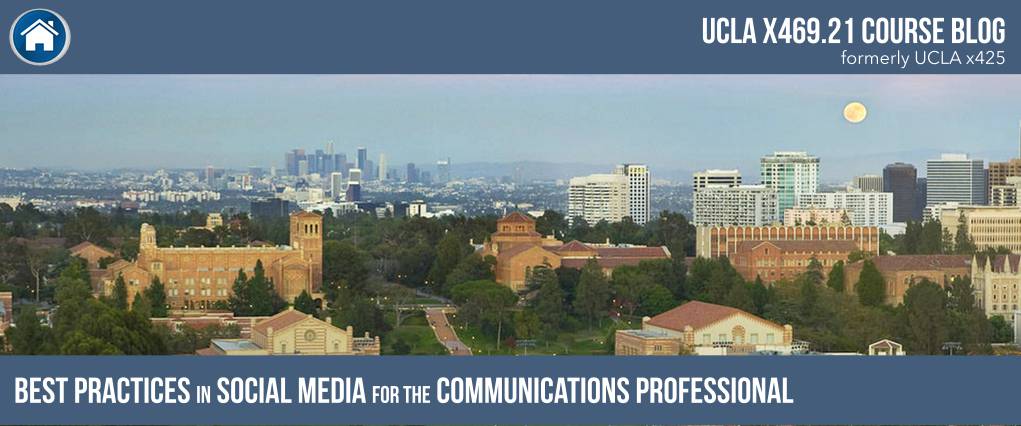
WEEK 5: A Conversation with Guest Speaker Tony Adam by Larry Leach
By UCLA X469.21 Student Larry Leach
For those who make a living using the internet, generating visibility and traffic is key. A website that doesn’t show up in the search listings for relevant search terms is not going to bring the traffic needed for success.
On Tuesday, Nov. 10, Tony Adam – Founder/CEO of digital marketing agency Visible Factors – was a guest speaker in the Best Practices in Social Media for the Communications Professional course, where he shared tips and strategies to optimize your site for search engine success.
He started off with a periodic table of SEO success factors displayed on the screen. I found this to be a great way to set the tone for the discussion, which basically broke down search engine optimization to a science.
During the discussion, Tony shared a number of key things to consider when approaching optimization for your site. He started with sharing two key principles. The first key principle is RELEVANCE: How relevant are your keywords to a search query. All sites have the option to utilize keywords in their coding in order to help search engines identify the content or elements of a specific page. The second key principle is AUTHORITY: This is determined by the importance or status of other pages that link to your site. For example, if you have .edu websites or .gov websites link to your site, you will be ranked higher than if you have irrelevant or lower quality sites linking to you.
Many website publishers have used a variety of tactics such as buying links in order to try and boost their rankings. Tony revealed that search engines have become wise to a lot of the questionable or unethical tactics often attempted to boost site placement. There are guidelines now in place to penalize sites – up to and including the removal of all of their site information from the search engine.
Those looking to boost their site rankings legitimately without violating Webmaster guidelines should keep the principles mentioned above in mind. They should also keep site information fresh and updated so it will be crawled (reviewed by search engines) more often.
Other ways to quickly impact your search engine placement is to fine-tune your page title tag and description tags. These items can be critical in adjusting your site ranking by giving the search engine a high importance page element to help rank your site.
One of the biggest takeaways from Tony’s discussion was the Google Adwords Keyword Planner. He emphasized that in order for your site to show up in the right search queries, you MUST know what your audience is searching for. Once you identify the topic, you can use the keyword planner to find out what specific terms and phrases the people you are targeting use to find your product or service. With the right key terms set up on your site and a high ranking from optimization based on the items above, your visibility and traffic should increase significantly.
Lastly, sites that blog 15 times a month or more have greater traffic. By blogging, your site constantly has new content, which draws back the search engine crawlers by showing you have an active site.
Tony proved to be a true SEO kingpin, and I would definitely look to him if I needed more tips to “Pimp My Site” up to the top of the search engine results pages.
SEO kingpin @tonyadam points out formulas for search engine success to #SocMedUCLA students #brilliant #pimpyoursite pic.twitter.com/BVCitKs1OT
— Da Professa (@mistaleach) November 13, 2015






